
At the turn of the 19th and 20th century Finnish philologist G. J. Ramstedt travelled around Mongolia and Central-Asia. In this documentary Ramstedt’s memoirs are heard in the modern day setting, where tradition is replaced with hunger for money, and deserts give way to cities.

Орда. Веками это слово означало кровавые набеги и унизительную дань для многих стран и народов. Странный и страшный мир со своими законами и обычаями. В середине XIV века власть Орды простирается над большей частью Евразии. Платит дань восточному соседу и Московское княжество. Когда ханшу Тайдулу сражает тяжелый недуг, ни один целитель оказывается не силах ей помочь. Тогда в Орду вызывают «московского колдуна» митрополита Алексия. На карту поставлена судьба всего княжества. Однако и сам Алексий не знает, чем обернется его путешествие в Орду.
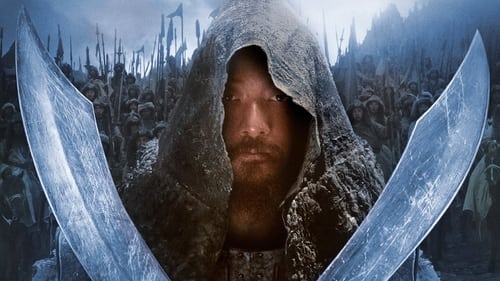
«Не презирай слабого детеныша — он может оказаться сыном тигра», — гласит монгольская пословица. Мальчик Тэмуджин, которому предстоит стать Чингисханом, повелителем половины мира, прошел через голод, унижения, рабство. На него охотились, его пытали и предавали. Он выжил, хотя казалось, что это невозможно. Его сила, ум и воля к жизни были несравнимы с возможностями обычного человека. Его поддерживала любовь Борте, первой и любимой жены, которую у него никто не смог отнять…
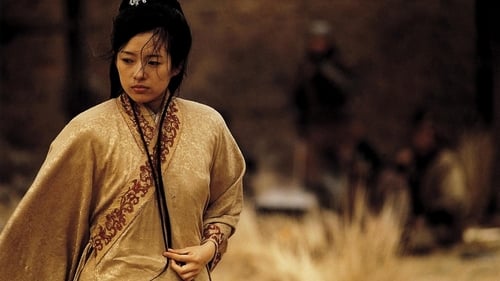
Конец 14 века. Непримиримая борьба двух династий за власть в империи наводняют китайскую империю реками крови, раздирают убийственными интригами. Захваченную в плен принцессу спасают корейские воины, которым угрожает неотвратимое наказание и страшные испытания: преодоление беспощадной пустыни, атаки разъяренных врагов. Но они должны наперекор воинственным стихиям — доставить принцессу императору в целости и невредимости…
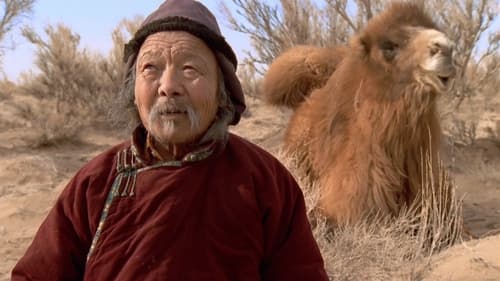
Весна в пустыне Гоби, Южной Монголии. Семьи кочевых племен останавливают свое движение, чтобы помочь верблюдам родить. И одна из матерей неожиданно отказывается от своего верблюжонка. Теперь кочевники вынуждены кормить и воспитывать малыша. Но молока не так много, а они в пустыне, надежд на спасение жеребенка совсем мало, но они есть.
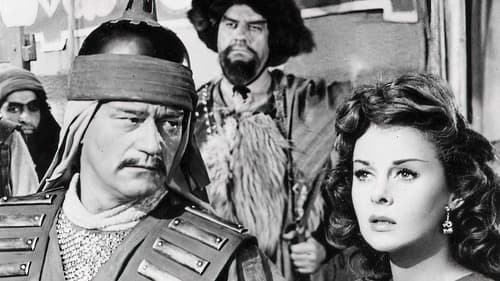
Вождь монголов Тимучин, который влюблен в дочь татарского вождя Бортай, крадет ее, тем самым ускоряя начало войны. Бортай отвергает Тимучина. Позже, при налете Тимучин попадает в плен. Но тут Бортай влюбляется в него и помогает ему бежать. Тимучин подозревает, что он был предан и намеревается найти предателя и победить татар.

A promise, an old, destroyed horse head violin and a song believed lost lead the singer Urna back to Outer Mongolia. Her grandmother was forced to destroy her once loved violin in the tumult of the Chinese Cultural Revolution. The ancient song of the Mongols, "The Two Horses of Genghis Khan", was engraved on the violin's neck. Only the violin's neck and head survived the cultural storm. Now it is time to fulfill the promise that Urna made to her grandmother. Arrived in Ulan Bator, Urna brings the still intact parts of the violin - head and neck - to Hicheengui, a renowned maker of horse head violins, who will build a new body for the old instrument in the coming weeks. Then, Urna leaves for the interior to look there for the song's missing verses. But she will be disappointed. None of the people whom she meets on the way appears to still know the old melody of the Mongols.
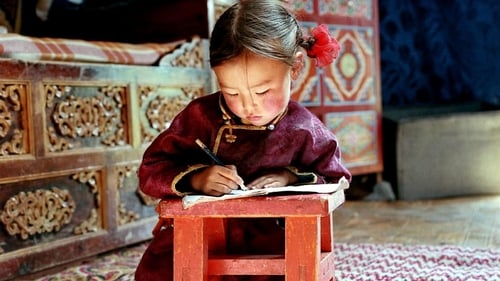
The little nomad girl, Nansal, finds a baby dog in the Mongolian veld, who becomes her best friend - against all rejections of her parents. A story about a Mongolian family of nomads - their traditional way of life and the rising call of the City.

A recently widowed affluent woman, Undral, faces an inevitable challenge when she must bring her late husband's former wife to the city from the countryside.

When his white stallion disappeared, Shukhert embarked upon a race against time to track down the bandits, find his horse, and bring it home before winter. In this documentary, like a Western set in the East, life seems stranger than fiction – despite this being an absolutely authentic tale. Horse thefts are commonplace in this region, each triggering epic hunts across the spectacular steppes of northern Mongolia. From Buddhism to Shamanism, from horses to reindeer, and from hunters to those looking for gold, his journey is punctuated by a range of encounters that help explain the diversity of this complex region with its ethnic and socio-economic tensions. Thanks to his knowledge of the Mongolian territory, culture, and language, and his extensive experience of the region over the past 10 years, Hamid Sardar takes us on a journey into a world accessible only to a rare few, where safety and justice are pushed to their limits.

A mongolian interpretation of Kafka's "The Castle".
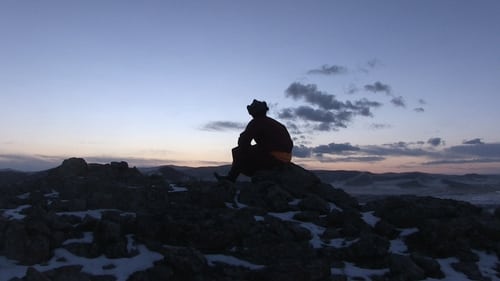
Currently Mongolia’s capital has 1.5 million inhabitants - half the population of the country. 50-year Tumurbaatar is only one of many coming to the city to fulfil their dreams of a better life.

Kenneth Seeley, member of the U. S. State Department's Foreign Service Bureau, and Marge Weldon, a morale worker with the bureau, are assigned to an area in Mongolia dominated by an outlaw warlord. The latter captures the village where they reside and when escape is clearly impossible, Seeley blows up the outlaw's headquarters, losing his own life in doing so.
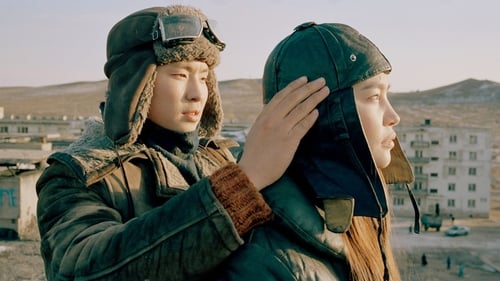
Set in the frozen steppes of Mongolia, a young nomad is confronted with his destiny after animals fall victim to a plague which threatens to eradicate nomadism.

The Darkhad and Soyon Uriyanghai peoples live in a vast valley in Northern Mongolia, much as their ancestors have for centuries. "Taiga" is the record of a long period spent by the German filmmaker Ulrike Ottinger among these people.


During the 12th Century a boy is born to a tribal chief. He is named Temujin, which means "blacksmith." Nine years later, his father is murdered by the Tartars After a long struggle, just when Temujin reclaims tribal chief status, the Merkit tribe kidnaps his wife. In order to fight against the Merkits, Temujin has to use his mother as a pawn in exchange for troops from ally tribes. Temujin manages to rescue his wife only to realise that she is pregnant with the enemy's child. Enduring tremendous anguish, Temujin throws himself into battle against the Tartars and slaughters the leader of the intruders. He eventually takes his wife back and accepts her child. Later on, he begins a campaign to unify all Mongolian tribes. By the age of 40, he is bestowed the title "Genghis Khan", which means "oceanic ruler".

This movie was produced by the beauty brand Lancome and fashion magazine Marie Claire’s collaboration to celebrate International Women’s Day on March 8th.

Α Bengalese architect builds library boats that can bring books to people even during the monsoon season. Α Mongolian author packs two boxes full of books each summer to provide reading material to children in remote areas. Α Kenyan librarian leads caravans of camels loaded with boxes of books to the nomadic tribes bordering Somalia. Despite the heat, wind, rain or snow, they still manage their long journeys. This film about the fascinating world of mobile libraries tells of unusual means of transportation and adventurous travel, of different cultures and lifestyles, of the worries, aspirations and dreams of people in these areas – of books that change lives – and of book lovers, who take on unbelievable challenges in order to provide people in the remotest areas of the world with reading material. A film about the love of literature and the respect for knowledge that accepts no boundaries.

The joys of the youth gather together for the New Year's Eve will lead to unimaginable circulation, interesting events and terrible events.
















